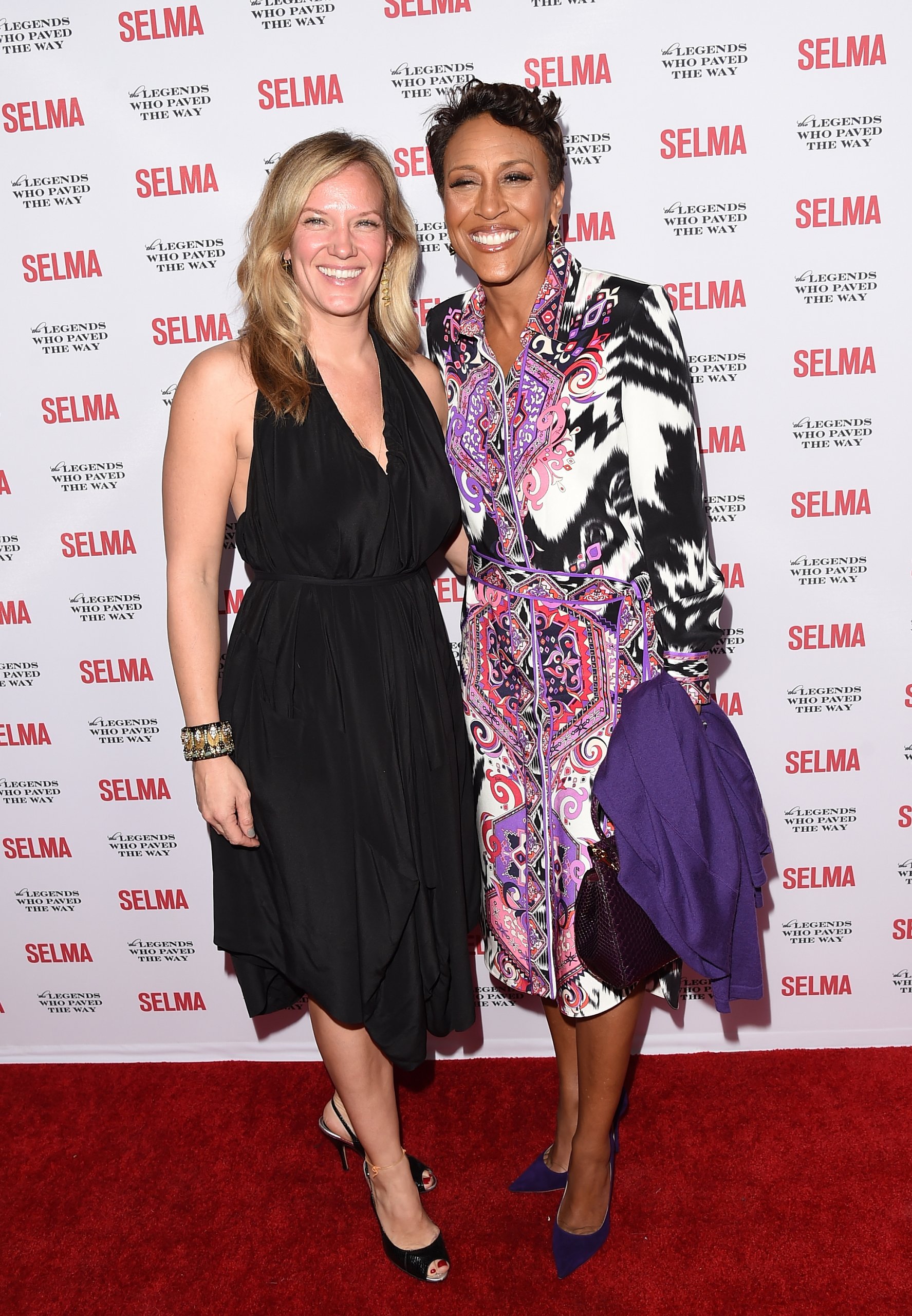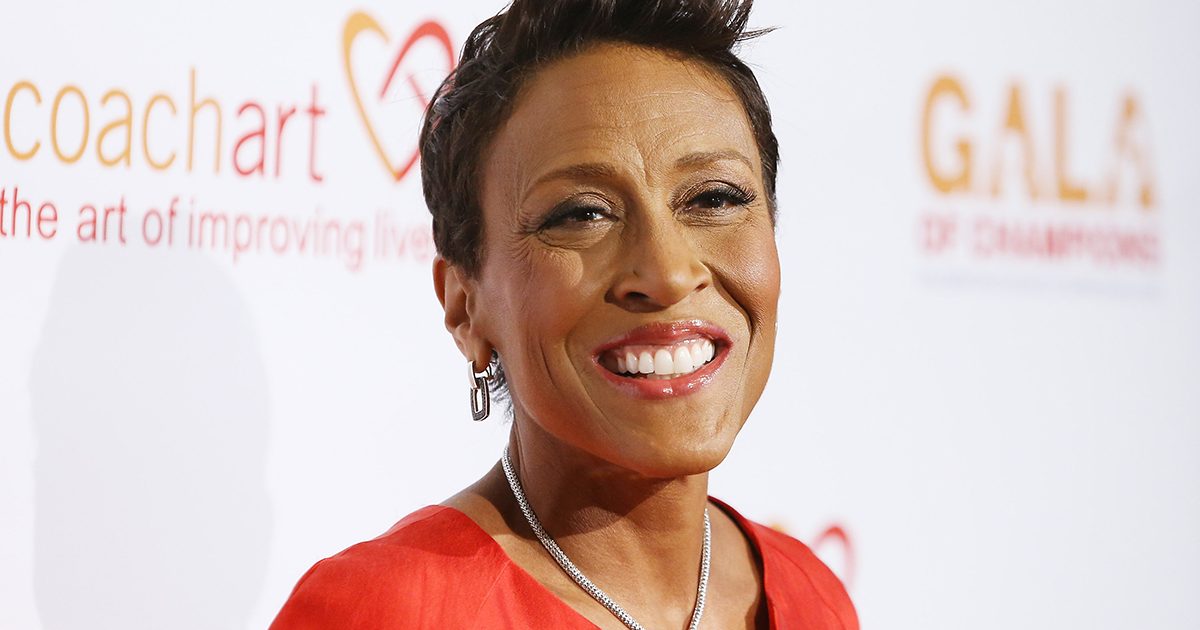Striving for Daily Optimism
- Good Morning America anchor Robin Roberts, 61, is one of the most inspiring people on and off-camera.
- The two-time cancer survivor consistently practices gratitude, and is cluing fans in on her five daily rituals for keeping a healthy outlook through life’s ups and downs.
- Not only is Roberts a survivor, but she is also a caregiver to her partner of 17 years who is now battling breast cancer. It is important for caregivers to remember to take care of themselves as well so they are able to be there for their loved ones without burning out.
“Please let people know I don’t wake up every day and go, ‘Boy, this is gonna be a great day!'” she told PEOPLE in a recent exclusive interview. “But, hey, a majority of them are,” she admitted. The New York City-based journalist is promoting her latest book Brighter by the Day: Waking Up to New Hopes and Dreams.
Read More
View this post on Instagram
Here are Robin’s five daily secrets that we can all easily incorporate into our lives, as told to PEOPLE’s Jason Sheeler:
- I start my day in quiet.
I’m up at 3:30 a.m., and I have what my Grandma Sally called “quiet time.” I don’t turn on the TV, I don’t reach for my phone. Someone told me recently that when you reach for your phone first thing in the morning, it’s like having 100 people in your bedroom screaming at you.
I meditate twice a day and pray too
2. I meditate twice a day and pray too.
When I start working every day on the air, it’s like being shot out of a cannon. So I now meditate after the show too. It’s a way to really settle myself: being mindful of my emotions, my feelings. I’m only recently willing to acknowledge fear and doubt. I say, “Okay, fear and doubt, you’re in my body. You’re visiting me. What is it? Why are you trying to get my attention?” I acknowledge it and then move on.
A Panic Attack While on ABC's 'GMA' Led Anchor Dan Harris to Try Meditation & It Worked
3. I do something just for me.
It’s not something that comes naturally, but self-care is not being selfish. It’s imperative that we take care of ourselves. I have started to play tennis. I read a book by Missy Buchanan, and she asked, “What brought you joy as a child? ” So now I’m on the court as much as I can be.
4. I share the messages that move me.
Before the pandemic, we used to pray in my dressing room for “Thankful Thursday”, which I’d post. Then we went home, and it became something just for me, Amber and our rescue dog, Lil Man Lukas and the response was tremendous. People wanted me to keep it going when I went back to the studio, so it became an act of service.
5. I allow myself to be vulnerable.
I tell people to “make your mess your message.” I have been more emotional about Amber than I was my two times [facing serious illness]. This is so odd for us. She’s so used to me being the patient, and I’m so used to her being the caregiver. To swap roles like we have, as much as I’m teaching her, she’s teaching me and encouraging me to take care of myself as I encourage her back.
Robin’s Cancer Battles
Roberts was diagnosed with breast cancer in 2007 after discovering a lump. Ironically, she made this discovery while prepping for a news segment on performing self-checks, which shows just how important they are to perform at home.
"At first I thought, 'This can't be. I am a young, healthy woman,'" Roberts said. The host's early detection was a critical factor in her survival. She treated her breast cancer with surgery, one of several treatment options for this disease, which can also be treated with radiation, chemotherapy, hormone therapy and immunotherapy.
In addition to battling breast cancer, Roberts had MDS, which stands for myelodysplastic syndromea rare type of blood cancer where abnormal cells form in the body's bone marrow. Roberts had to undergo a bone marrow transplant.
Chemotherapy for breast cancer could have likely contributed to Roberts' secondary cancer. Although it is rare, it is one of the risks of treatment. MDS caused by cancer treatment is called "secondary MDS" or "treatment-related MDS."
Surviving one cancer battle is intense enough, but having to go through it a second time can be extremely discouraging. Now, Roberts is having to go through it yet again with her beloved Amber.
From Cancer Survivor to Caregiver
While it is undeniably difficult to be diagnosed with and treated for cancer, twice in Roberts’ case, the family members and friends who care for cancer patients also face their own set of challenges.
"Caregiving is the most important job in the universe, because you are there through the highs and lows," Julie Bulger, manager of patient and family-centered care at Vanderbilt-Ingram Cancer Center in Nashville, TN, tells SurvivorNet. "You are there to support your loved one, to manage all of the daily tasks as everything is changing in your life."
Caregiver burnoutthe stress, anger, fatigue, and illness that can come from putting another person's needs ahead of your ownis real. It can sneak up on you if you don't take care of yourself. "It is important to have some things that you can do outside of the focus of caring for somebody that you love with cancer," Bulger says.
She suggests that you take a walk. Get a massage. Visit a support group for cancer caregivers, either online or in person. And see a therapist if you're struggling to cope with all of your new responsibilities. Joining a support group and building your support team is often a very important strategy and can help prevent or reduce the risk of caregiver burnout.
Know that you are doing truly important work, and appreciate yourself for it. "There's so much evidence that outcomes are better when somebody has an incredible caregiver by their side," Bulger says. Research also finds that caregivers who take good care of themselves provide the best quality of care. "So you are helping your loved one in more ways than you know."
Learn more about SurvivorNet's rigorous medical review process.


